Best Reads of 2019
January 30, 2020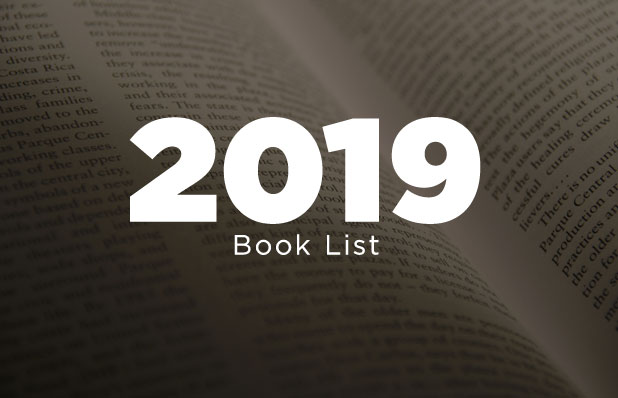
I'm often asked what books I recommend, and this is the time of year that I usually take note of the helpful books I’ve read from the past year. This year’s list was hard, but here are 10 I’ve found helpful in 2019.
Reformed Dogmatics Volume 2, Herman Bavinck
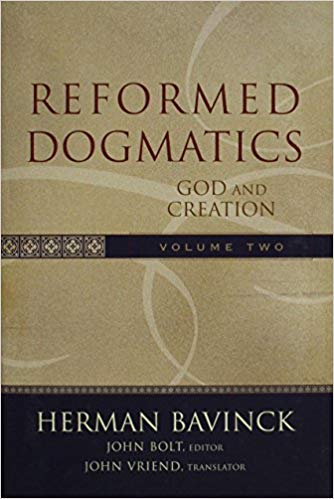 I love books that give you the sense that you are being awakened to a new, more profound sense of our glorious God. This book did just that for me this year. Bavink spends the first some 100 pages on the topic of the knowledge of God by asking the critical, pervasive question in both philosophy and religion of whether or not it's a fool's errand to believe that we can truly know the incomprehensible God as finite creatures. He reminds us that philosophers, atheists, agnostics, and eastern religions alike rightly apprehend the overwhelming complexity of believing that we can have any true knowledge of God considering his greatness. He eventually moves strongly towards the necessity of God's special revelation in his Word in a way that carries a unique awe-inspiring force—an incomprehensible God ought to make us love our Bibles. I can’t recommend this highly enough.
I love books that give you the sense that you are being awakened to a new, more profound sense of our glorious God. This book did just that for me this year. Bavink spends the first some 100 pages on the topic of the knowledge of God by asking the critical, pervasive question in both philosophy and religion of whether or not it's a fool's errand to believe that we can truly know the incomprehensible God as finite creatures. He reminds us that philosophers, atheists, agnostics, and eastern religions alike rightly apprehend the overwhelming complexity of believing that we can have any true knowledge of God considering his greatness. He eventually moves strongly towards the necessity of God's special revelation in his Word in a way that carries a unique awe-inspiring force—an incomprehensible God ought to make us love our Bibles. I can’t recommend this highly enough.
Expository Exultation, John Piper
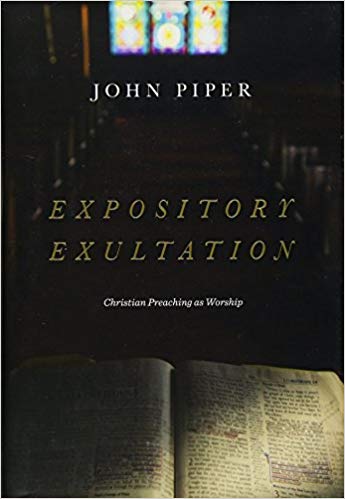 Many books on preaching read the same way with some significant nuance that sets them apart. Like Lloyd-Jones, Piper's book feels like a step away from the normal pattern you might find in someone like Haddon Robinson or Bryan Chappell. Many differences could be highlighted throughout, but one major contribution of this work centers on the way that Piper understands the main word for preaching in the New Testament as heralding. In other words, preaching is distinct from teaching (though the two often go together) in that the word for preaching speaks of a particular kind of worship that ought to elicit worship in others. Preaching explains and exults. The preacher tastes and sees God is good and then helps others taste just how good God is.
Many books on preaching read the same way with some significant nuance that sets them apart. Like Lloyd-Jones, Piper's book feels like a step away from the normal pattern you might find in someone like Haddon Robinson or Bryan Chappell. Many differences could be highlighted throughout, but one major contribution of this work centers on the way that Piper understands the main word for preaching in the New Testament as heralding. In other words, preaching is distinct from teaching (though the two often go together) in that the word for preaching speaks of a particular kind of worship that ought to elicit worship in others. Preaching explains and exults. The preacher tastes and sees God is good and then helps others taste just how good God is.
Catching Foxes: A Gospel-Guided Journey to Marriage, John Henderson
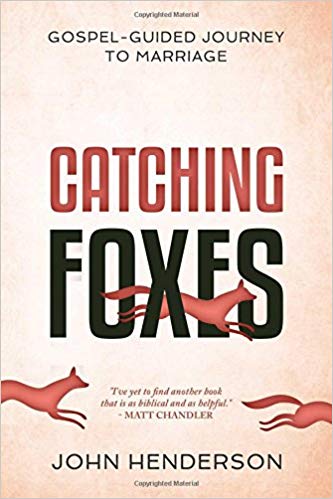 A number of pastors have recommended this book and I had good reason to read it this year. I found it to be a great field guide for couples considering marriage. Chapters are short, and each is followed by great discussion questions every couple should consider before making one of the most important decisions of their lives.
A number of pastors have recommended this book and I had good reason to read it this year. I found it to be a great field guide for couples considering marriage. Chapters are short, and each is followed by great discussion questions every couple should consider before making one of the most important decisions of their lives.
Signs of the Spirit: An Interpretation of Jonathan Edwards’ Religious Affections, Sam Storms
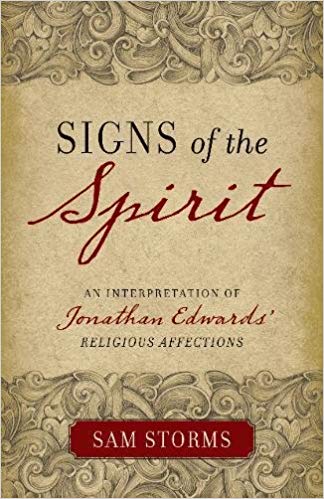 I read Religious Affections (RA) three times in college, and wish I had Sam Storms’ guide to Edwards’ thought then. God used Edwards as a leader of the First Great Awakening. RA represents Edwards’ attempts to help others distinguish between true and false works of the Holy Spirit during this unique season of revival. Storms simplifies Edwards’ writing, which some might perceive as cumbersome. Storms really does make RA’s deep theology accessible. This would be a great book to read slowly and chew on to grow in your ability to think through what true spirituality looks like according to God’s Word with a pastor who was confronted daily with discerning.
I read Religious Affections (RA) three times in college, and wish I had Sam Storms’ guide to Edwards’ thought then. God used Edwards as a leader of the First Great Awakening. RA represents Edwards’ attempts to help others distinguish between true and false works of the Holy Spirit during this unique season of revival. Storms simplifies Edwards’ writing, which some might perceive as cumbersome. Storms really does make RA’s deep theology accessible. This would be a great book to read slowly and chew on to grow in your ability to think through what true spirituality looks like according to God’s Word with a pastor who was confronted daily with discerning.
A Grief Sanctified, J.I. Packer
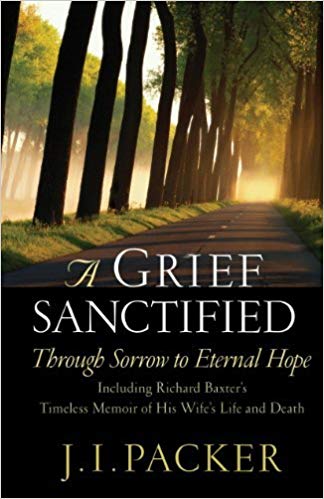 Packer offers some unpublished writings from the Reformed pastor, Richard Baxter, who is more famous for his book The Reformed Pastor. This book gives a helpful glimpse into the humanity of Baxter as he reflects on his marriage to Margaret Charlton. This intimate look into the heart of this famed puritan offered helpful insight into how his deep theology helped to shape and mature their romance as well as increasing his emotional IQ.
Packer offers some unpublished writings from the Reformed pastor, Richard Baxter, who is more famous for his book The Reformed Pastor. This book gives a helpful glimpse into the humanity of Baxter as he reflects on his marriage to Margaret Charlton. This intimate look into the heart of this famed puritan offered helpful insight into how his deep theology helped to shape and mature their romance as well as increasing his emotional IQ.
Budgeting for a Healthy Church, Jamie Dunlop
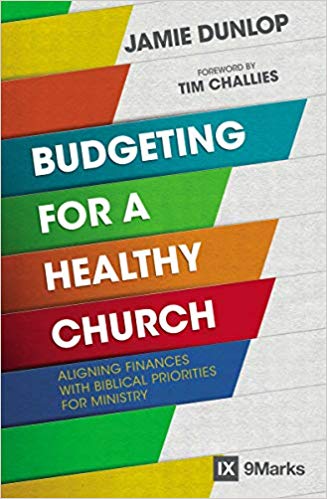 Jamie puts his decade of service as an elder over the finances at CHBC to work showing how churches ought to be thinking about budgets both theologically and practically. He offers a unique blend of practical helps and theological grounds that provide invaluable resources for churches seeking to refocus their resources towards gospel-centered purposes.
Jamie puts his decade of service as an elder over the finances at CHBC to work showing how churches ought to be thinking about budgets both theologically and practically. He offers a unique blend of practical helps and theological grounds that provide invaluable resources for churches seeking to refocus their resources towards gospel-centered purposes.
After God's Own Heart: the Gospel According to David, Mark Boda
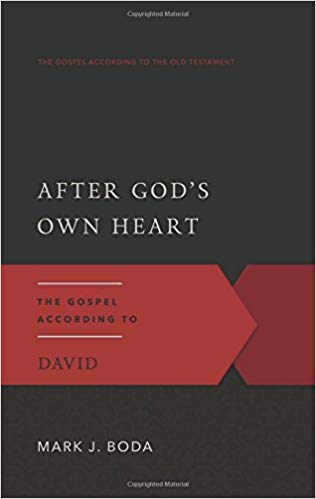 This book helped prepare for our series on the life of David. Boda offers helpful insights on how to connect the life of David, God’s Spirit-anointed King or Christ, to the greater Christ, Jesus.
This book helped prepare for our series on the life of David. Boda offers helpful insights on how to connect the life of David, God’s Spirit-anointed King or Christ, to the greater Christ, Jesus.
Overcoming Sin and Temptation, John Owen
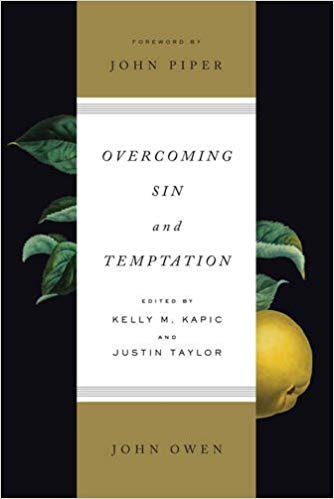 This work by John Owen was tremendously helpful. Understanding temptation and the way it works in our hearts can be complicated. Meditating on how temptation functioned in the life of Jesus can be mind-boggling. Owen works through these issues with a surgeon’s scalpel resulting in a much-needed gospel armament against the various temptations that confront us each day.
This work by John Owen was tremendously helpful. Understanding temptation and the way it works in our hearts can be complicated. Meditating on how temptation functioned in the life of Jesus can be mind-boggling. Owen works through these issues with a surgeon’s scalpel resulting in a much-needed gospel armament against the various temptations that confront us each day.
No Exit and Three Other Plays, Jean-Paul Sartre
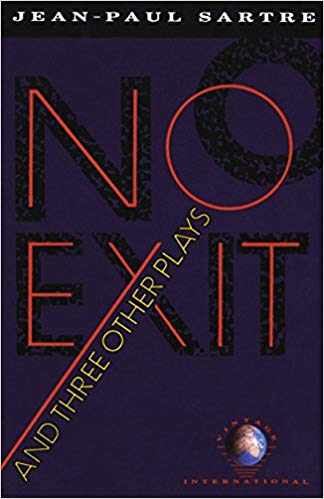 Please take this recommendation with caution, and I’m focusing on No Exit here in particular. Three characters are led into a room and eventually realize they are dead. God is noticeably absent. This work contains all of the immorality one would expect of Sartre, but the absurdity of the final scene captures the despair of humanity facing death without meaning. He attempts to highlight the Hell-like existence living in bondage to the objective opinions of others about you, but he offers no hope of finding meaning or dignity in this life or death.
Please take this recommendation with caution, and I’m focusing on No Exit here in particular. Three characters are led into a room and eventually realize they are dead. God is noticeably absent. This work contains all of the immorality one would expect of Sartre, but the absurdity of the final scene captures the despair of humanity facing death without meaning. He attempts to highlight the Hell-like existence living in bondage to the objective opinions of others about you, but he offers no hope of finding meaning or dignity in this life or death.
Remember Death, Matthew McCullough
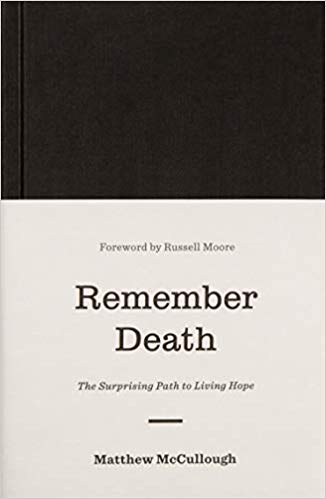 I received a copy of Matt's book at a conference this year. I’ve known Matt for 20 years so I had a little extra incentive to dive in and see what this brother had to say. Book stores are replete with works on living your best life that focus on thinking positive thoughts, working smarter not harder, eating right, etc. This work talks about the necessity of considering death regularly so that you might bring greater glory to Christ in this life. As such, this work falls under the category of momento mori, or remembering death, where he encourages each of us to consider our last day so that we can live every day between now and then better. McCullough's writing reads a little like Keller as effortlessly moves from sociology, to philosophy, to theology, ending with a more hopeful life for Christ.
I received a copy of Matt's book at a conference this year. I’ve known Matt for 20 years so I had a little extra incentive to dive in and see what this brother had to say. Book stores are replete with works on living your best life that focus on thinking positive thoughts, working smarter not harder, eating right, etc. This work talks about the necessity of considering death regularly so that you might bring greater glory to Christ in this life. As such, this work falls under the category of momento mori, or remembering death, where he encourages each of us to consider our last day so that we can live every day between now and then better. McCullough's writing reads a little like Keller as effortlessly moves from sociology, to philosophy, to theology, ending with a more hopeful life for Christ.
A Grief Observed, C.S. Lewis
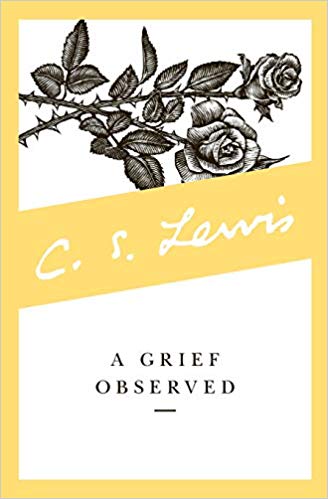 Lewis’ theology is dangerous in places. Few can illustrate as well as he does. Lewis writes this work on the pain of losing his wife in his 60s. I found this work to be so visceral, and painful. It misses the mark on offering the hope of the gospel. So I recommend it for an objective view of grief but not a subjective help or pedagogical tool for the grieving per se.
Lewis’ theology is dangerous in places. Few can illustrate as well as he does. Lewis writes this work on the pain of losing his wife in his 60s. I found this work to be so visceral, and painful. It misses the mark on offering the hope of the gospel. So I recommend it for an objective view of grief but not a subjective help or pedagogical tool for the grieving per se.